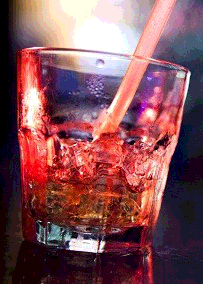Parents warned on teen booze plans
 A new study suggests parents who supply their teens with alcohol to control how much they drink are often mistaken.
A new study suggests parents who supply their teens with alcohol to control how much they drink are often mistaken.
Research by the National Drug Research Institute at Curtin University examined the drinking behaviour of more than 500 Australian 17 to 18-year-olds at social events that attract the heaviest drinkers, including school leaver celebrations.
A quarter of young people at school leaver celebrations reported being supplied alcohol by their parents with about half of those who reported parental supply ‘topping up’ from other sources.
But the study also found teenagers who consume alcohol are less likely to engage in high risk drinking if they know their parents disapprove of them doing so.
Lead researcher Dr Tina Lam said the findings shows it is vital for parents of teenagers to be involved and to communicate their expectations on drinking to their children.
Dr Lam said despite more young people choosing not to drink in recent years, alcohol-related harms in this teenage group were very high, driven by those engaging in high risk drinking, but parents could play a vital role in reducing this harm.
“This study found parental disapproval of risky drinking was the most reliable protective factor against heavier alcohol consumption, and that it was effective even in environments where young people said it felt like everyone around them was drinking, such as school leaver events,” she said.
“Parents may supply their child with alcohol with the best intentions. However, this and other research suggests young people often drink more than just what their parents supplied.
“Instead, parental supply of alcohol is likely to only be topping up what young people already have access to through their friends. Young people at school leaver celebrations who were supplied with alcohol by their parents, for example, still drank an average of 15 standard drinks a day at the event.
“Longer-term studies also suggest children interpret parental supply as parental approval for drinking and are more likely to engage in regular high risk drinking and experience more alcohol-related harms.
“The research evidence suggests speaking to your children about any concerns you have around alcohol use and coming up with a plan if they encounter an alcohol or other drug issue, particularly at an event like school leaver celebrations, reduces the risk of alcohol-related harm for young people.”







 Print
Print